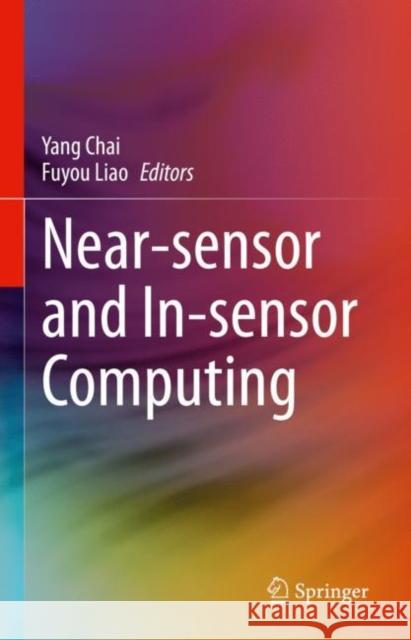Near-sensor and In-sensor Computing » książka
Near-sensor and In-sensor Computing
ISBN-13: 9783031115059 / Angielski / Twarda / 2022 / 240 str.
Near-sensor and In-sensor Computing
ISBN-13: 9783031115059 / Angielski / Twarda / 2022 / 240 str.
(netto: 325,85 VAT: 5%)
Najniższa cena z 30 dni: 327,68
ok. 16-18 dni roboczych.
Darmowa dostawa!
This book provides a detailed introduction to near-sensor and in-sensor computing paradigms, their working mechanisms, development trends and future directions. The authors also provide a comprehensive review of current progress in this area, analyze existing challenges in the field, and offer possible solutions. Readers will benefit from the discussion of computing approaches that intervene in the vicinity of or inside sensory networks to help process data more efficiently, decreasing power consumption and reducing the transfer of redundant data between sensing and processing units.Provides readers with a detailed introduction to the near-sensor and in-sensor computing paradigms;Includes in-depth and comprehensive summaries of the state-of-the-art development in this field;Discusses and compares various neuromorphic sensors and neural networks:Describes integration technology for near-/in-sensor computing;Reveals the relationship between near-/in-sensor computing and other computing paradigms, such as neuromorphic computing, edge computing, intuitive computing, and in-memory computing.
This book provides a detailed introduction to near-sensor and in-sensor computing paradigms, their working mechanisms, development trends and future directions. The authors also provide a comprehensive review of current progress in this area, analyze existing challenges in the field, and offer possible solutions. Readers will benefit from the discussion of computing approaches that intervene in the vicinity of or inside sensory networks to help process data more efficiently, decreasing power consumption and reducing the transfer of redundant data between sensing and processing units.
- Provides readers with a detailed introduction to the near-sensor and in-sensor computing paradigms;
- Includes in-depth and comprehensive summaries of the state-of-the-art development in this field;
- Discusses and compares various neuromorphic sensors and neural networks:
- Describes integration technology for near-/in-sensor computing;
- Reveals the relationship between near-/in-sensor computing and other computing paradigms, such as neuromorphic computing, edge computing, intuitive computing, and in-memory computing.











